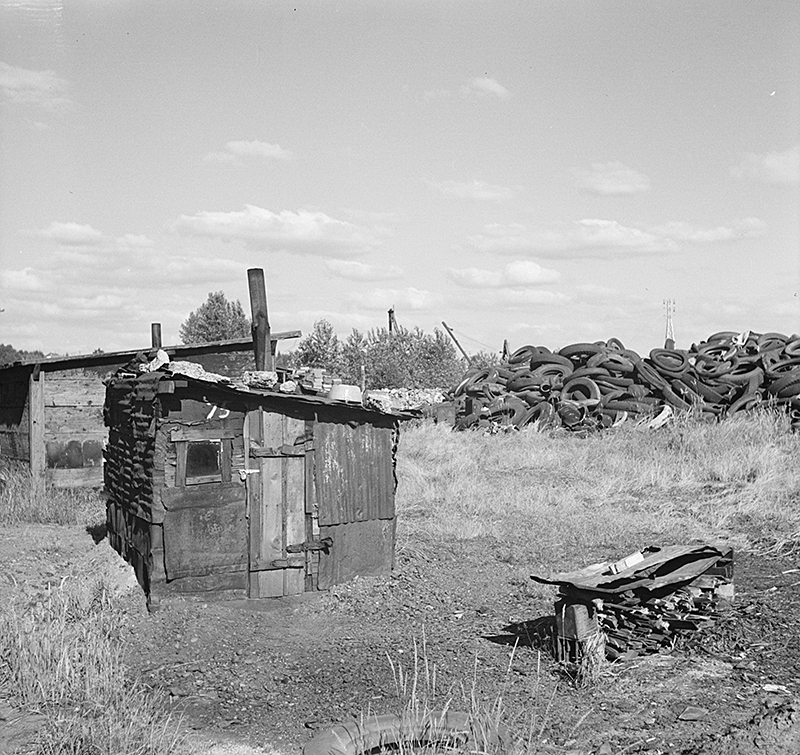Hoovervilles was a nickname for homeless camps in the United States during the Great Depression. The Great Depression was a worldwide economic slump of the 1930’s. The name Hoovervilles reflected people’s anger and disappointment with President Herbert Hoover’s failure to end the Depression.

Herbert Hoover, a member of the Republican Party, took office as president in March 1929. The stock market crashed that October, and the U.S. economy slumped badly. Hoover at first was reluctant to interfere with the economy. He believed that business, if left to operate under limited regulations, would correct the economic conditions. Hoover eventually approved some measures to help the unemployed and to keep banks and railroads from failing. Still, the economy grew worse.
By 1932, more than 12 million Americans—about a quarter of the work force—were out of work. Factories and businesses closed, and banks failed. Many people lost their homes because they could not keep up their mortgage payments. Hundreds of thousands of people wandered the country seeking food, shelter, and jobs.
Many people who lost their homes remained in their communities. Some moved to neglected sections of town and built shacks from old crates, pieces of cardboard, flattened tin cans, and other materials. Charles Michelson, the publicity director of the Democratic National Committee, called the gatherings of shacks Hoovervilles. The nickname became popular.
Some Hooverville shacks were neat and sturdy, but others were rough. Most of the camps lacked sanitation. Some camps had churches and makeshift governments. In some Hooverville areas, residents displayed a bleak humor by labeling “streets” with such names as “Easy Street” or “Prosperity Road.” Some of the largest Hoovervilles formed in St. Louis; Seattle; Washington, D.C.; and New York City’s Central Park.
In the November 1932 election, Franklin D. Roosevelt soundly defeated Hoover. In the years that followed, Roosevelt’s programs helped improve conditions for many Americans. The camps declined in number during the late 1930’s. Fearing that the camps would become permanent slums, authorities broke up the most of the remaining Hoovervilles in the early 1940’s.
